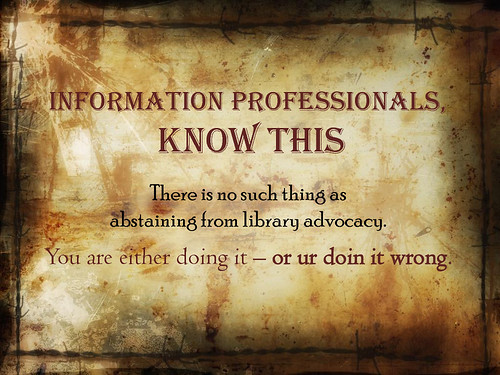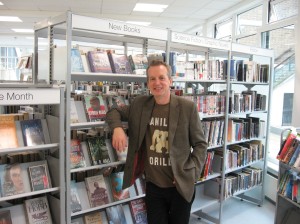Librarianship was yesterday featured in the Guardian's Beyond the Job Series. The article was entitled Beyond books: what it takes to be a 21st century librarian and was written by Emma Cragg and Katie Birkwood.

I am so happy about this article! For loads of reasons.
First of all, this is a brilliant piece. Here is a quote - I originally highlighted three paragraphs I really liked in order to copy and paste them, but realised that would basically be quoting half the article... Here is one bit I liked, but I liked all of it, and you should go read the whole thing.
"Books are only one aspect of what libraries and librarians are about. Librarianship is a people profession; a librarian's job is to connect people with the information they are seeking, whatever format that may take. At their heart, all library jobs have a central purpose: to help people access and use information, for education, for work, or for pleasure. In all library roles customer service and communication skills are important. If anyone ever thought they'd become a librarian because they liked books or reading, they would be sorely disappointed if they did not also like people too."
The article says all the things you'd want it to say, as a library professional, and all the things you'd need it to say, as someone curious about entering the field and needing to know the reality of it.
Second of all, it is in the Guardian. It will be read by thousands and thousands of people, all of whom will be educated about what librarianship consists of even if they don't go on to try and become one. It is a proper bonafide Echo Chamber escape. I believe the genesis of the idea came from this post on Emma's blog, and the comments that followed.
Thirdly, it mentions the Library Routes Project. Laura and I wanted to break this resource (which, if you're unfamiliar with it, documents librarians' roots into the profession and their routes through it) out of the echo chamber but have been unable to do so, really. I actually contacted the Guardian to propose an article about it, but didn't get a response. Emma and Katie have found just the right medium in which to mention it, and they got in lots of references to Bobbi Newman's Library Day in the Life Project too (you can see my video contribution to that project, here). Perfection! Since the article was published around 24hrs ago, the Library Routes wiki has been viewed hundreds of extra times - finally by some non-librarians, I hope.
Fourthly it mentions me! And this slide-deck:
I sought to get this slide-deck seen outside the echo chamber as much as possible, and although that certainly happened this will really add to it - in fact Emma commented that they were going to try and link to it from a Guardian article way back then, now it has finally come to fruition. It's really kind of Katie and Emma to include a link to this, so thank you to them. As a Guardian reader since literally aged 12 (yes, I know...) and someone who literally loves the paper and the institution, being mentioned by a Guardian article is definitely (literally) pretty fabulous!
So the question is, can any of us repeat this success elsewhere? Emma and Katie are presumably forbidden from reproducing their work in other publications, but there is nothing to stop the rest of us finding avenues for writing a guide to librarianship and getting it published in neutral, non-library places. Are you up for the challenge?
- thewikiman



